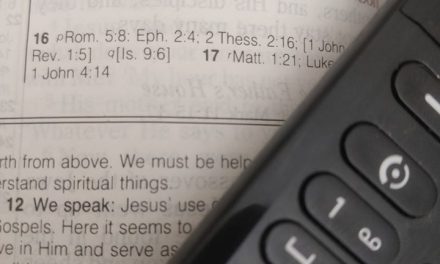… Brethren, our preaching will bear its legitimate fruits. If immorality prevails in the land, the fault is ours in a great degree. If there is a decay of conscience, the pulpit is responsible for it. If the public press lacks moral discrimination, the pulpit is responsible for it. If the church is degenerate and worldly, the pulpit is responsible for it. If the world loses its interest in religion, the pulpit is responsible for it. If Satan rules in our halls of legislation, the pulpit is responsible for it. If our politics become so corrupt that the very foundations of our government are ready to fall away, the pulpit is responsible for it. Let us not ignore this fact, my dear brethren, but let us lay it to heart and be thoroughly awake to our responsibility in respect to the morals of this nation. —Charles Finney (December 4, 1873).
We are living in the evilest generation since the time before the flood, and it is getting worse. The Scripture reveals a lost generation that displeased God, who always go astray in their heart, taking pride in their sinful ways, unbelief, ingratitude, and committing idolatry (Heb 3:10). There is a lost generation due to lack of generational instruction of Biblical teachings and sacrificial leadership, hence an increasing new generation that no longer adheres to the Biblical instructions, breaking away from traditional teaching of God’s Word. The church has a higher missional purpose and not just to exist for the sake of the world. Sadly, in a lost generation, the church that should set an example for the world is now following the example set by the world, hence the famine of speaking and hearing of God’s Word.
Prophet Amos’ prophecy on a famine for the Word of God relates not only to our current cultural and religious landscape but also to a lost generation (Amos 8:11-12). It is important to note that the famine is as much for lack of speaking as for the lack of hearing by a very busy generation. There are always consequences for individuals and the community when faithful preaching and hearing are absent or compromised. The church is under a famine when preaching is not preaching and hearing is not hearing (1 Pet 1:21-2:2). In a culture that is dismissive of the Bible as the source of truth about life, God, and eternity, preachers as careerists abandon the original intent of the Scripture, thereby losing the power and authority which begets and nourishes spiritual life.
Charles Finney, in his statement, attributes the lost generation to the pulpit. The preaching from the pulpit bears the fundamental description and legitimate fruits of the lost generation, including the prevalence of immorality, a decay of conscience, lack of moral discrimination by the public press, degeneration and worldliness of the church, world’s lack of interest in the Gospel, satanic rules in our halls of legislation, corrupt politics and politicians in government. The Trinity Parables speak to our hearts, awakening us to the pulpit responsibility in respect to the moral regeneration of the lost generation.
A lost generation is a loss of God-given testimony. The lost generation does not know how to find its way back to God. They have abandoned their moral compass, the Word of God. They ignore Jesus, Who is the Way, the Truth, and the Life. The lost generation needs a fresh understanding of the Trinity of Parables for a humble encounter and wholeness with the Person of Jesus, the Shepherd of their soul, the Holy Spirit, our guide to search for the truth, and the compassionate love of God the Father.
The zeal and affection for holiness as a lifestyle of outflow of God’s nature in a lost generation are being cast aside and redefined, hence a lost generation becomes susceptible to a corrupt nature, no longer upholding godly values, bringing a reproach to Christianity rather than glorifying God.’ A lost generation, with the zeal of warriors, pursues self-indulgence with the passion of a true believer.
The concept of a lost generation is ushered in due to rejection of sound biblical teaching or preaching (2 Tim 4:3-4). There is a dereliction of leadership in the government and in the pulpit with the tragic reality of our present-day challenges. Beyond the corruption and greed in leadership, a decay of conscience towards God’s Word is on the rise, producing a lost generation of churchgoers. In their lostness, the lost generation is replacing old saints of the past, who are failing to exercise the biblical standard of God’s Word or pass on godly instruction because they have not received it themselves.
Flooded by a cloud of hypocrisy and mediocrity, the lost generation has lost the fear of God, especially in the church. The three parables recorded in Luke 15 call us to salvation and wholeness through Jesus Christ, the works of the Holy Spirit and the love of the Father. The Trinity of Parable provides a spiritual guide to address the situation and genuine care for the lost generation to wholeness. Like sheep, most churches and people’ nibble their way’ to lostness – nibble on one turf of grass theology, greed, corruption, and leadership to another until they do not know where they are, like the prodigal son.
The Trinity of Parable offers the preachers the opportunity to preach the Trinity and not just ‘on’ it, and for the hearers to hear the Trinity and not just about the Trinity. Abstract preaching and hearing about the Trinity without incorporating the Father, Son, and Holy Spirit into every aspect of the ministry and the congregation can enhance the lost generation. The Trinity of Parables is connected to daily life experiences and stories with heavenly meanings. The Trinity of Parable encourages spiritual accountability, relationship and a communal way of being in the world.
Beyond mere repetitions, the three parables declare ‘the same main truth, the compass of salvation and wholeness, with each one revealing a different phase of it. The parables shaped by ‘unity of essential truth and distinctness of description provide the visible expression of the mission of Jesus Christ as the Chief Shepherd, the Holy Spirit, and the works of the Father. The first parable points to the Chief Shepherd, Jesus Christ, who lays down His life to seek a lost sheep which has gone astray. The Chief Shepherd, with much pain and self-sacrifice, seeks the reckless, wandering sheep, not senseless or dead.
The second parable brings to the fore the work of the Holy Spirit working through the woman, a symbol of the church for the lost souls. The woman lit a candle, and even thus the Holy Spirit lights up some chosen man whom he makes to be a light in the world. The woman as a model of soul-winning shines as a light amid a crooked and perverse generation, to find lost souls. She fetched her broom and swept the house to bear upon the accumulated dust of sin, among others. The woman diligently searches for the insensible but lost piece of money, that is, an unconscious and powerless generation in need of the reawakening through the power of the Holy Spirit to search out those who are dead in trespasses and sin. The third parable points to the Father receiving His lost prodigal son who comes back to Him.
The need of the lost generation is to be made whole. The Trinity parables provide the compass for the salvation and wholeness of the lost generation. The treasure, a piece of silver lost in the dust, requires sweeping because it has ‘fallen into a dusty place, fallen to the earth, where it might be hidden and concealed amid rubbish and dirt.’ There are many souls of brothers and sisters represented as a piece of silver lost, fallen, dishonoured, and some are buried amid foulness and dust of sin and unbelief.
The salvation and wholeness of the lost generation is first personal before corporate. The lost generation needs to hear preachers preaching salvation and wholeness for their marriages, homes, churches and nations (Lk 15). To become whole again, the parable of the lost sheep and lost coins calls the lost generation to hear and find the lost pieces of their lives, faith, churches, marriage, nations, and leadership. Sadly, the lost generation knows they are lost, and other times they do not. The question for the lost generation is, what have they lost in their Christian discipleship, marriage, leadership, and scriptural holiness? Have they lost themselves to fear, unforgiveness, immorality, lying, and anger? Have they lost their faith, hope or dream? Jesus is calling the lost generation to wholeness and salvation.
The Trinity of Parable offers the guide for preaching and hearing to bear abiding fruits, overcome immorality, decay of conscience, and awaken to our responsibility to the morals of our nations and the revival of our churches. Getting lost is tragic and costly. The Trinity of Parables is very applicable not only to the lost generation but also to the church, leadership and nations today. Just as we have a lost generation, it implies that leadership can be lost, and the church can be lost. Beyond the gift of GPS on our phones, to be lost is to be away from God, where you belong, and it takes a process. Like the sheep, one can get separated and start following other things in the wrong direction. The lost generation is a challenge to the church and the world in general. For Heaven to rejoice, the lost generation must be found again, starting with you and me.











Recent Comments